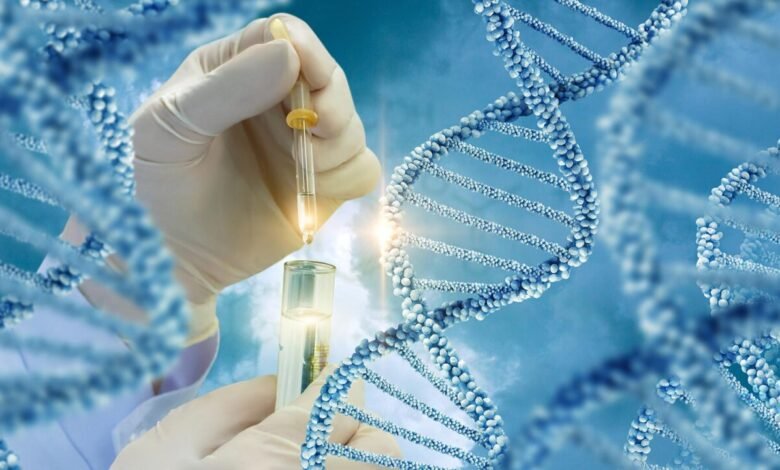Biotechnology Advances: The Genesis of Biotechnology

Introduction of Biotechnology Advances
Have you ever stopped to think about the very bread you eat? Imagine Ancient civilizations brewing beer, fermenting wine, or making cheese. These are some of the earliest examples of Biotechnology Advances in action. Before the term “biotech” existed, humans manipulated living organisms to serve our needs.

Modern Beginnings
Fast forward a few millennia. Picture a scientist in a lab, unraveling the very threads of life: DNA. The 20th century saw Biotechnology Advances leap from kitchen processes to intricate genetic manipulations, marking the dawning age of modern biotech.

Contemporary Biotech Breakthroughs
Contemporary Biotechnology Advances breakthroughs are revolutionizing our world, from gene-editing marvels like CRISPR to innovative drug therapies tailored to individual genetics. Advances such as lab-grown organs promise a future where organ shortages become history. Synthetic biology techniques, for example, push the frontiers of what is possible by producing new living forms and materials. Biotechnology can tackle some of humanity’s most severe problems in this fast-paced period.

CRISPR: Gene Editing’s Finest
Have you ever wished to edit out life’s errors, just like a typo in a Word document? With CRISPR, that dream edges closer to reality. This revolutionary tool has transformed gene editing, allowing precise modifications with unprecedented ease. From curing genetic diseases to designing more resilient crops, CRISPR offers endless possibilities.

Personalized Medicine
Imagine if doctors could tailor treatments to your unique genetic makeup. Sounds futuristic? Well, it’s happening now. Personalized medicine uses genetic data to craft treatments, ensuring higher success rates and fewer side effects.

Agricultural Biotech
Agricultural biotech is reshaping modern farming, introducing genetically modified crops that resist pests and thrive in harsh conditions. Through innovations like drought-resistant plants, farmers can combat climate change challenges. Techniques such as vertical farming harness biotech to optimize urban agriculture. With these advances, biotechnology promises a sustainable and abundant food future.

GMOs: A Modern Controversy
Remember the uproar about genetically modified organisms (GMOs)? While contentious, GMOs have paved the way for crops that resist pests, endure harsh climates, and even contain enhanced nutrients. So, should we see them as biotech’s blessing or bane?

Vertical Farming and Biotech
What if skyscrapers could feed cities? Vertical farming and Biotechnology Advances innovations can make this a reality. These high-tech farms stack crops, optimizing space and resources, and are set to redefine urban agriculture.

Environmental Impacts and Solutions
Environmental impacts, from deforestation to pollution, threaten our planet’s health and biodiversity. Biotechnology offers solutions like bioremediation, using organisms to clean up pollutants. Biofuels present a green alternative to fossil fuels, reducing carbon footprints. By harnessing biotech, we can combat environmental degradation and pave the way for a sustainable future.

Bioremediation
Ever wish nature had its janitors? Enter bioremediation. This process uses organisms like bacteria to break down pollutants, turning wastelands into clean lands. It’s nature’s way of cleaning up after our messes.

Biofuels
Could our cars run on corn or sugarcane? With biofuels, they can. Biotechnology Advances is at the forefront of developing sustainable, eco-friendly fuels, reducing our dependency on fossil fuels.

The Ethical Implications
The ethical implications of biotech delve deep into moral dilemmas, questioning our right to alter life’s code. From designer babies to gene-edited crops, we grapple with potential unintended consequences. Biotechnology’s power to reshape life raises concerns about playing god and challenges traditional beliefs. As we advance, striking a balance between innovation and ethics becomes paramount.

Designer Babies and Morality
What if you could select your child’s traits? Eye color, intelligence, height… Biotech is bringing these choices to the fore, but at what cost? Are we venturing into uncharted ethical waters?

Biotech and Biodiversity
Think of a world with only one type of apple or just a single dog breed. Sounds dull. As biotech advances, it’s crucial to ensure biodiversity is preserved. Variety, as they say, is the spice of life.

Are We Playing God?
Is meddling with genes playing god? This question ripples through biotech debates, reminding us of the profound power — and responsibility — this science bestows.
Looking to the Future
The biotech frontier is vast and ever-evolving. From brain-computer interfaces to artificial life forms, who knows what marvels await? One thing’s for sure: biotech’s journey is just beginning, and it promises to reshape our world in unimaginable ways.

Conclusion
With its vast potential, Biotechnology Advances has transformed and continues to shape multiple facets of our world. From addressing food scarcity to designing next-generation therapies, its impact is undeniable. With enormous authority, however, comes excellent duty. As we embrace its marvels, ethical considerations must guide our path, ensuring that we harness biotechnology for the betterment of all.
FAQs of Biotechnology Advances: The Genesis of Biotechnology
What are bioreactors and their significance in biotechnology?
Bioreactors are vessels where biological reactions or processes are conducted, often involving microorganisms or cellular cultures. They're crucial for producing biopharmaceuticals, biofuels, and other biotech products on a large scale.
How does biotechnology address environmental concerns?
Biotechnology can help degrade pollutants, develop biofuels, reduce waste, and create more sustainable industrial processes. Examples include bio-remediation techniques that use microbes to clean up oil spills.
What are the ethical considerations in biotechnology?
As with any advanced field, biotechnology presents ethical dilemmas, especially in cloning, GMOs, and gene editing. These considerations often involve weighing potential benefits against unforeseen consequences and moral or philosophical beliefs.
Are there careers dedicated solely to biotechnology?
Absolutely. Careers in biotech range from research and development, clinical testing, quality control, and regulatory affairs to sales and marketing of biotechnological products.
Biotechnology Advances: The Genesis of BiotechnologyHow Do You Like Our Post
0






